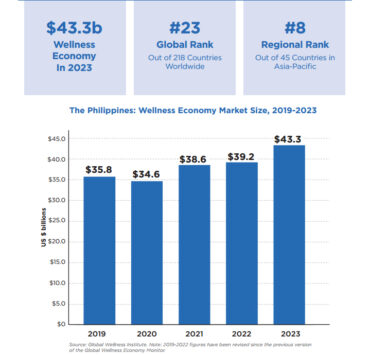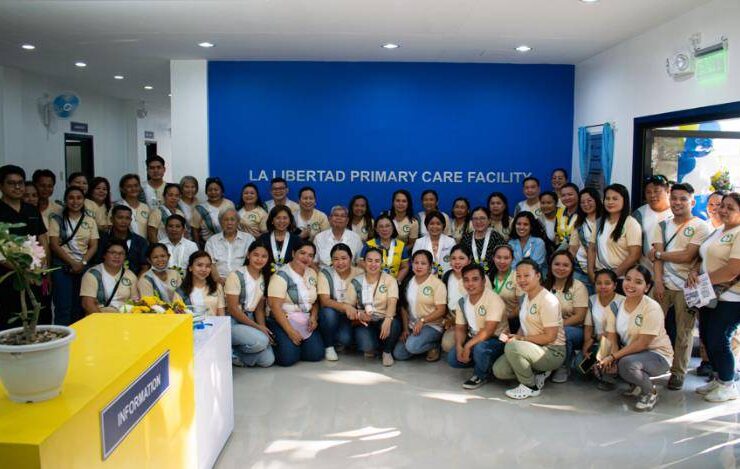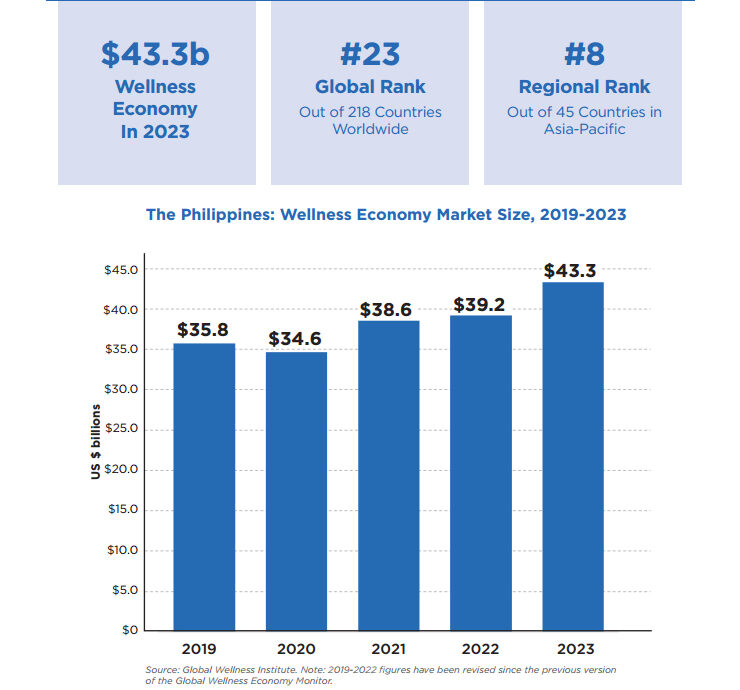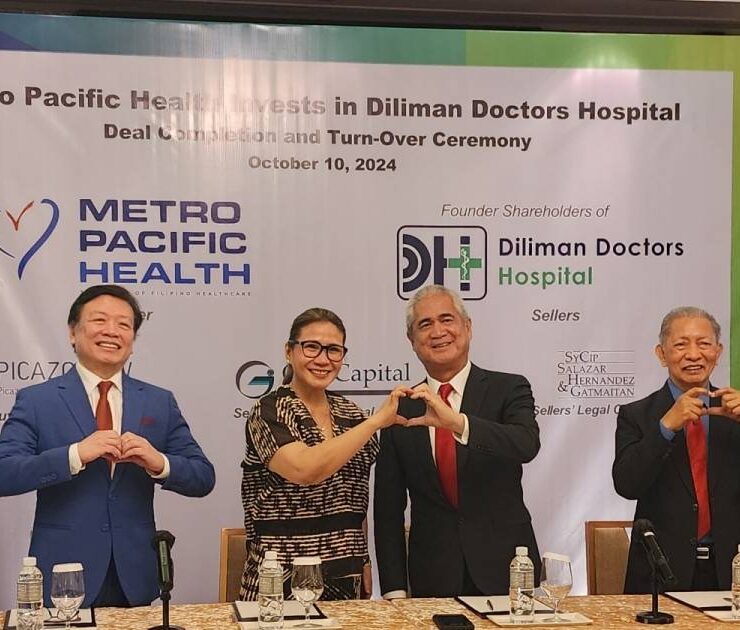AC Health looks to transform health for every Filipino
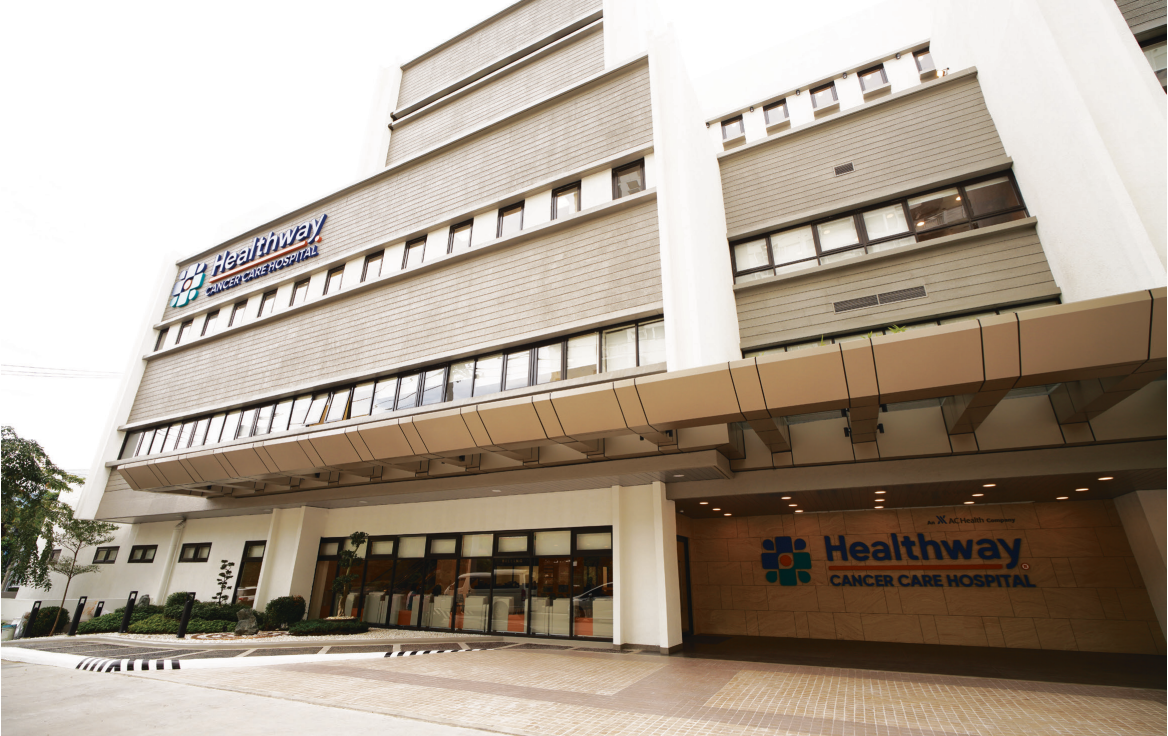
As the country’s oldest and largest conglomerate, the Ayala Group has always been an active partner in the Philippines’ push for growth and development, addressing issues vital to a developing nation and filling gaps in services where they exist.
The expanding network of AC Health, the healthcare arm of the Ayala Group, is the conglomerate’s initiative to provide every Filipino accessible, affordable, and quality healthcare.
AC Health’s portfolio currently includes Healthway Medical Network, a network of multi-specialty and corporate clinics, ambulatory centers, and full-service hospitals; Generika Drugstore, a pioneer in generic retail pharmacies; St. Joseph Drug, a leading retail pharmacy in North and Central Luzon; and I. E. Medica and MedEthix, a major pharmaceutical importer and distributor.
Through this network, AC Health is looking to create a seamless and integrated healthcare ecosystem for the Filipino patient.
Rafael Jaime V. Recio, chief strategy and investment officer for AC Health, said the 10-year-old enterprise was designed to enable Filipinos to access best-in-class health and medical care at a reasonable price range.
“We wanted to create an eco-system that would be present across different touchpoints where patients needed us,” Recio said, and “provide more quality options to Filipinos”.
The AC Health infrastructure began with its acquisition of Generika Drugstore, a retail chain which, as the name suggests, champions the use of generic medicines. It was the first step in pursuing AC Health’s goal to provide every Filipino affordable healthcare.
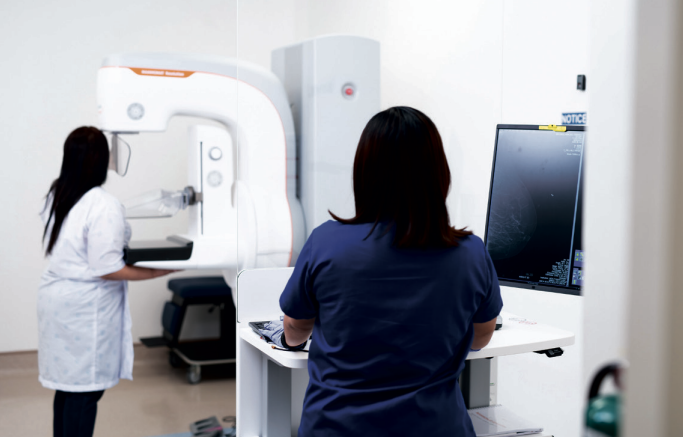
From retailing generic pharmaceuticals, AC Health leap-frogged to the delivery of health and medical care. It brought into its fold in 2019 I. E. Medica and MedEthix to strengthen its pharmaceutical supply chain.
That same year, AC Health acquired Healthway Philippines, Inc., one of the leading clinic networks in the Philippines. In 2021, it acquired a majority stake in the QualiMed Health Network, which operates four hospitals outside of Metro Manila.
Three years later, in 2024, it added that FEU-NRMF (Far Eastern University-Nicanor Reyes Medical Foundation) to its roster of hospitals.
AC Health has also invested in St. Joseph Drug, a leading retail pharmacy in northern Luzon.
Dr. Beverly Lorraine C. Ho, chief health officer said, aside from the multispecialty clinics in the Healthway network, AC Health is also managing corporate clinics on behalf of several large employers.
Under existing labor laws, companies, with a specified number of employees, are required to operate clinics inside their premises.
Recio said contracting out corporate clinics ensured companies always had the medical staff required to attend to employees’ health and medical issues and keep the workforce healthier.
Ho, a former Department of Health assistant secretary, emphasizing the importance of health promotion and disease prevention, said a component of clinic management services includes health education for the staff to promote healthy lifestyles and encourage proactive screening. “In collaboration with human resources or benefits managers of the companies, we organize online or face-to-face seminars, sometimes even bringing in specialists and/or advocacy partners,” she said.
In 2023, AC Health opened the Healthway Cancer Care Hospital, which provides end-to-end cancer services, including screening, diagnosis, treatment, and post-cancer care at rates much lower than those charged by leading medical institutions.
Recio said AC Health decided to build a cancer specialty hospital because the country registered some 150,000 diagnoses of the deadly disease every year. Undiagnosed cases probably exceeded that total.
Despite the high incidence of cancer, there is still no specialty hospital for the dreaded and deadly disease. The Philippines has centers for lung, kidney and heart ailments. The Healthway Cancer Care Hospital is the first dedicated cancer specialty hospital in the country.
Recio said, with this new facility, they aimed to help bring down the cost of cancer management.
AC Health has also taken a bold step to address not just the medical but also the social implications of cancer by spearheading the Working with Cancer Pledge, together with the Publicis Groupe and the People Management Association of the Philippines.

The Working with Cancer Pledge is a global movement that calls on businesses to commit to supporting employees battling cancer by fostering an inclusive and empathetic workplace.
The Working with Cancer Pledge underscores AC Health’s commitment to providing quality, accessible and affordable cancer care. It addresses a critical gap in the nation’s healthcare system.
Through its vast network of healthcare facilities, partnerships with corporations, and community-building initiatives, AC Health has
rallied multiple organizations around this cause, creating a movement of solidarity and compassion for those working with cancer.
By supporting employees working through cancer, AC Health and partner companies send the powerful message that health, empathy and productivity can coexist. The Pledge promotes a culture of inclusion, respect and care within the corporate sector.
For the campaign, AC Health taps the expertise of its Healthway Cancer Care Hospital for vaccination, early screening, diagnosis, chemotherapy, radiotherapy, and surgical interventions.
The company also extends the partnership within its broader healthcare ecosystem to cover screening, executive check-up and vaccination, among others.
AC Health has also responded to the Department of Health’s (DOH) announcement that HIV (human immunodeficiency virus) infections have risen significantly to become a national public health emergency.
Health Secretary Teodoro J. Herbosa reported a staggering 500 percent increase in HIV infections among individuals aged 15 to 25. From just six reported cases daily in 2010, the DOH now records between 40 and 57 new cases each day.
Unmanaged, HIV can lead to the deadly AIDS (acquired immunodeficiency syndrome). The virus reduces a person’s immunity making him/her vulnerable to many diseases.
AC Health is mobilizing its integrated healthcare network to help curb the alarming rise in HIV cases across the country by pushing for proactive HIV screening in workplaces, schools, and communities.
Ho, a public health expert, stressed the critical role the private sector could play in expanding access to HIV prevention, screening, treatment and counseling.
“The government and civil society organizations have made significant progress in addressing the HIV epidemic,” Ho said. “But with this looming public health emergency, the private sector must step up to complement existing efforts and help scale proven interventions.”
As AC Health marks a major milestone, its 10th anniversary, it plans to further expand its portfolio of services in pursuit of its goal to transform health care for every Filipino.
Plans, according to Recio, included expanding to at least 10 hospitals, 300 clinics, and 1150 pharmacies by 2027.
The AC Health network currently includes:
236 corporate and multispecialty clinics, as well as six hospitals under the Healthway Medical Network
880 Generika Drugstore and St. Joseph Drug pharmacies
1,178 certificates of product registration under I.E. Medica and MedEthix
In 2024, AC Health’s revenues grew 10 percent to P9.4 billion. Its provider group under Healthway Medical Network saw a revenue growth of 22 percent, which was well above the hospital industry growth of 8 percent. Revenue from its pharma group outperformed the pharma industry, which experienced a 5 percent decline.
AC Health president and chief executive officer Paolo Borromeo said, “What we’re building is a healthcare group designed for the long haul. We are backed by an ecosystem that is rooted in our commitment to providing quality, accessible healthcare to every Filipino.”
By the time AC Health celebrates its 20th year in 2035, it hopes to be a $2-billion healthcare enterprise that remains firmly committed to its vision of transforming health for every Filipino.
“Our goal is to build a healthcare company that is not only financially resilient, but also deeply transformative for Filipinos,” Borromeo said. “In 10 years, we’re going to be a $2-billion healthcare enterprise that serves one in every five Filipinos.”














